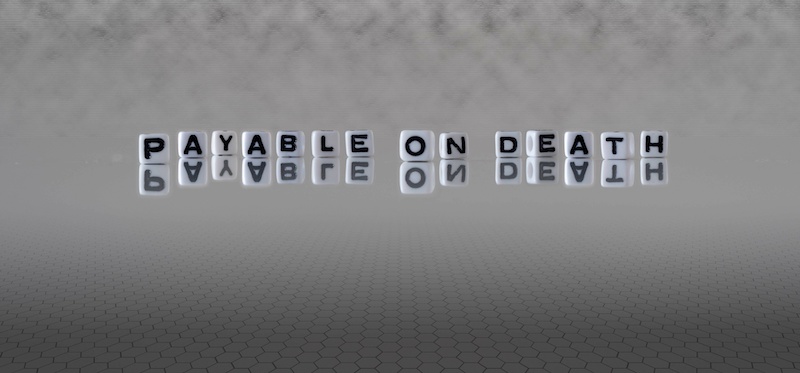
Probate is the last thing most people want to experience after a loved one has passed. Though the process of distributing a deceased person’s property is not complex, you should understand how it works, especially if you wish to spare your heirs from running into problems. This blog addresses how to avoid probate.
What is Probate?
Probate dictates distribution of your property after your death. Your attorney or estate executor generally initiates probate. During the process, a court will validate your will, authorize the executor to distribute your estate to beneficiaries, and pay any taxes that your estate owes.
Just beware. Everything grows more complicated without a will. For example, further administrative proceedings determine how to divide your estate . When this occurs, the court chooses an administrator for the estate. Thus, this executor follows the probate judge’s instructions for distributing the property.
Why Avoid Probate?
Though probate is usually straightforward, most people want to avoid it at all costs. The reasons can vary widely, but here are some of the most common:
- The process is slow

In some instances, proceedings take years to finalize. This is especially true for complicated situations involving a contested will. - The process is costly
While costs vary between states, probate usually requires attorney costs, executor fees, and other administrative expenses like an appraiser’s fee. As you can probably guess, costs accumulate quickly. - Records are public
Since probate is a state legal proceeding, what happens inside the courtroom does not stay there. All information exchanged or discussed in the probate process is entered into the public record.
Here’s How to Avoid Probate
 Between the hassle and costs, it’s always best to avoid probate so that your loved ones don’t have to incur more pain after losing you. Here are some steps you can take to prevent the process:
Between the hassle and costs, it’s always best to avoid probate so that your loved ones don’t have to incur more pain after losing you. Here are some steps you can take to prevent the process:
Maintain a Small Estate to Avoid Probate 
Many states have established exemption levels for probate, which offer at least a quicker process for what’s considered a small estate. It’s important to note that in some states, a “small” estate can still be large, so be sure to check your local probate estate limits.
To Avoid Probate, Give Away Assets Now
 You may be able to have your estate labeled as exempt or simplified probate position by decreasing the value while you are still alive. In other words, give the items away while you are still living rather than leaving the assets to family and friends after you die. This reduces the amount that goes through probate and may also help minimize or eliminate future state and federal estate taxes.
You may be able to have your estate labeled as exempt or simplified probate position by decreasing the value while you are still alive. In other words, give the items away while you are still living rather than leaving the assets to family and friends after you die. This reduces the amount that goes through probate and may also help minimize or eliminate future state and federal estate taxes.
Make Accounts Payable Upon Your Death
Accounts that are eligible to be paid upon death are directly given to the designated beneficiary without the worry of probate. Again, check with your state because some also allow these transfers for real estate.
Create a Living Trust
 Trusts are a great way to avoid probate because the property held in a trust is not considered part of your estate upon your death. Why? Not you, but a trustee, controls the property and is tasked with distributing the contents under the terms of the trust agreement.
Trusts are a great way to avoid probate because the property held in a trust is not considered part of your estate upon your death. Why? Not you, but a trustee, controls the property and is tasked with distributing the contents under the terms of the trust agreement.
To Avoid Probate, Own Joint Property
Making your spouse or other trusted person a joint owner facilitates asset transfer without probate. Some common ways to hold joint property include tenancy by the entirety, joint tenancy with the right of survivorship, and community property with the right of survivorship.
At the end of the day, if you can avoid probate, you will save your heirs a great deal of stress and potentially time and money. However, if probate becomes necessary, never fear. We can help you throughout the process.
About Walnut Creek Elder Law in Walnut Creek, California
Michael J. Young is an experienced elder law, estate planning and asset protection planning attorney in Walnut Creek, CA. Mr. Young advises his clients regarding their estate planning needs with an emphasis on asset protection, Medi-Cal qualification, and preservation of assets for various levels of their care as they get older. Mr. Young’s journey into elder law began when his mother suffered from an acute injury that required her to be in a skilled nursing facility. He is co-author of the book, Don’t Go Broke in A Nursing Home and is the author of the “Alzheimer’s Legal Survival Guide.” Mr. Young presents monthly workshops in Walnut Creek regarding estate planning, asset protection, and Medi-Cal planning. He has helped many clients over the years successfully qualify for Medi-Cal and has protected their assets from state recovery. Call today to schedule a consultation (925) 256-0298.

